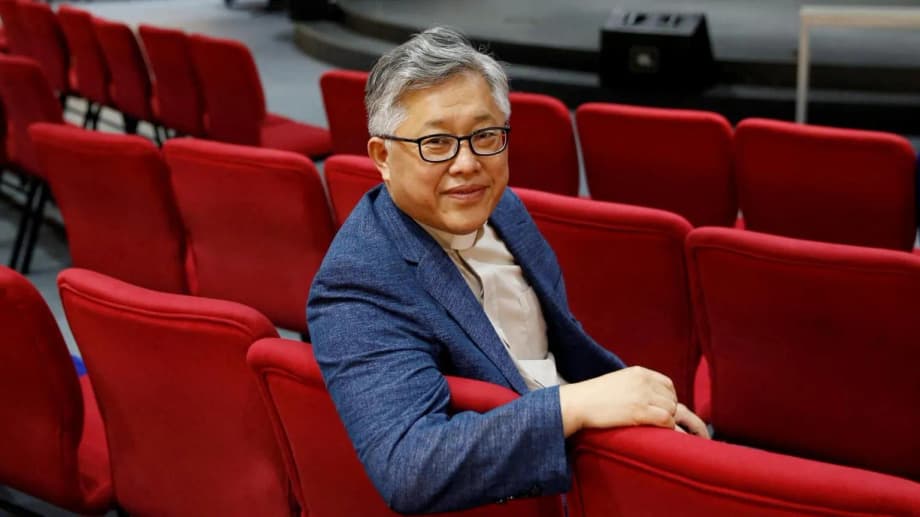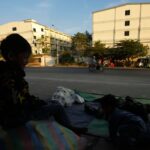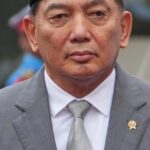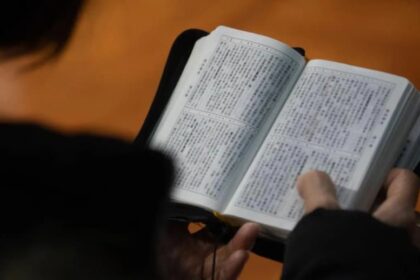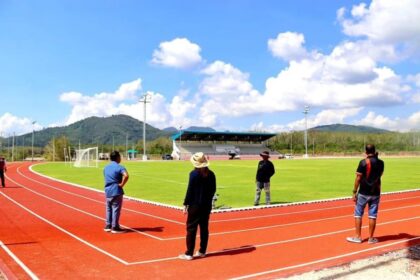A coordinated sweep across China
Chinese authorities carried out a coordinated sweep of pastors, preachers, and members tied to the unofficial Zion Church network over the weekend of October 10 to 11, detaining around 30 people across multiple cities. Among those taken into custody is the church’s founder, Pastor Jin Mingri, also known as Ezra Jin, who is being held in Beihai City No. 2 Detention Center in the southern region of Guangxi on suspicion of the charge described in official paperwork as “illegal use of information networks.” Family members, church colleagues, and advocacy groups say some detainees have been released, but many remain behind bars or have not been reachable since the arrests began.
- A coordinated sweep across China
- Who are the Zion Church and its founder
- Why the authorities moved now
- How the weekend arrests unfolded
- A broader pattern of control
- The numbers behind China’s Christian community
- Health, legal access, and what comes next for detainees
- International reaction and diplomatic backdrop
- Key Points
The Zion Church network, one of China’s most prominent unregistered Protestant communities, has long drawn attention from authorities. Activists and church representatives describe the latest detentions as the largest coordinated arrest of Christians in years, stretching across at least seven cities and, by some accounts, more than ten. Police activity reportedly extended to Beijing, Shanghai, Shenzhen, and several provinces, with officers presenting wanted lists and seizing phones during raids. In one reported case, a female pastor was separated from her newborn baby during detention.
Religious control has tightened in recent months. A new online code of conduct announced in September limits internet preaching and religious education to licensed groups only, closing a lifeline unregistered communities used after public worship became risky. The weekend campaign appears to enforce these rules at national scale. It also follows years of policies under President Xi Jinping to align religion with Party-defined values, widely known in China as sinicisation of religion.
Who are the Zion Church and its founder
Founded in 2007 by Pastor Jin Mingri in Beijing, Zion Church grew quickly through large Sunday gatherings, small group meetings, and an expanding network of congregations that reached thousands each week in dozens of cities. The church is not registered with the government’s official Protestant system and has operated independently of state oversight. In 2018, Beijing authorities shut down Zion’s main meeting place after the church declined to install government-run surveillance cameras, forcing congregations into smaller venues and online services. Since then, church leaders have reported round-the-clock monitoring, frequent police questioning, and restrictions on travel. Pastor Jin’s family relocated to the United States several years ago while he remained in China, where he was later placed under a travel ban.
From student activist to pastor
Before becoming a pastor, Jin studied at Peking University and lived through the 1989 pro-democracy movement, an experience that he and others say deeply shaped his eventual conversion to Christianity. He later pursued ministry training, including completing graduate study in theology in the United States, then returned to build Zion Church into a wide-reaching network of worship and discipleship. Friends and colleagues say he anticipated that his leadership role could bring arrest and had discussed contingency plans and legacy issues with his family.
What the church says about politics
Church leaders have long tried to distance their faith practice from political confrontation. Sean Long, a pastor and spokesperson for the Zion network, has said the church does not seek to oppose the government and is not aligned with any political movement at home or abroad. He has urged that ministers and staff be released and that their online religious activities not be treated as crimes. His statements underscore the church’s claim that its work focuses on worship, prayer, and community support rather than political organizing.
Why the authorities moved now
China’s framework for managing religion has tightened in stages. Revised regulations in 2018 expanded government oversight of clergy, financing, venues, and education. Many unregistered congregations responded by shrinking their public footprint or moving online. In 2022, China introduced internet rules that require licenses for the distribution of religious content, and in September 2025 authorities announced a new online code for religious personnel that further restricts preaching and teaching over the internet by groups that are not authorized. Taken together, these measures significantly reduce the space for unregistered communities to operate in public or online.
Beijing’s official line
Chinese diplomats and officials describe their approach as a legal system that protects belief while regulating activity. In a statement addressing religious policy, the Chinese embassy in London said that the country guarantees lawful religious belief but expects compliance with regulations on practice.
The embassy said: “Citizens enjoy freedom of religious belief according to law, but all religious activities must comply with Chinese laws and regulations.”
Authorities say that online preaching without authorization, fundraising outside approved channels, or connections with overseas organizations can violate the law. These areas have been focal points of enforcement efforts since 2018. The leadership under President Xi has also emphasized sinicisation, a policy that calls on religious groups to align doctrine and practice with socialist values and national culture, and to place operations firmly under official supervision.
How the weekend arrests unfolded
Church sources and relatives say the first detentions began on Thursday and gathered pace through Friday and Saturday as police in multiple cities moved on pastors, preachers, and lay staff. Witnesses describe officers arriving with lists of names, confiscating devices, and warning family members against public advocacy. In several cities, police reportedly questioned large numbers of ordinary worshippers as well, part of a months long pattern of stepped-up visits to Sunday services and private homes.
Charges centered on the internet
The accusation that Pastor Jin and others engaged in the illegal use of information networks points to the online sphere, where unregistered churches had migrated after public gatherings came under pressure. Several recently introduced measures ban unauthorized online preaching, restrict livestreamed services, and require licenses for religious content. Rights advocates and church representatives fear prosecutors may add non religious offenses such as fraud or illegal business operations, charges that have appeared in prior cases against house church groups. The risk of economic charges would also carry financial and reputational costs for congregations, and could be used to intimidate networks across the country.
A broader pattern of control
The Chinese state recognizes five religions, including Protestantism and Catholicism, but requires all legal activity to occur within registered, government controlled bodies. That includes the Three Self Patriotic Movement for Protestants and the Chinese Patriotic Catholic Association for Catholics. Registration brings oversight of clergy appointments, sermon content, meeting places, and education. Officials have ordered crosses removed from skylines, shuttered or demolished some church buildings, and warned against unsanctioned gatherings. Minors are often barred from joining religious activities. The guiding principle, spelled out in Party meetings, is to keep religion compatible with official ideology and national priorities.
Other churches targeted in recent years
What is happening to the Zion network fits a larger pattern. In Chengdu, Early Rain Covenant Church faced a sweeping raid in late 2018, and Pastor Wang Yi later received a nine year prison sentence after a court convicted him on charges that included inciting subversion and illegal business activity. In Beijing, members of the unregistered Shouwang Church endured years of pressure and repeated detentions. Earlier in 2025, members of the Linfen Golden Lampstand Church received heavy sentences after authorities pursued a fraud case. These prosecutions typically hinge on non religious offenses, reflecting an approach that treats unregistered ministry as criminal activity in other areas of law.
The numbers behind China’s Christian community
Exact counts are elusive, but official tallies record tens of millions of Christians worshiping in state registered Protestant and Catholic congregations. Scholars and rights groups estimate that tens of millions more take part in unregistered house churches that fall outside the official system. The gap between official numbers and independent estimates reflects how many believers prefer to gather in small fellowships, and how hard it is to track religious practice in a system that often pushes unregistered worship out of public view.
Health, legal access, and what comes next for detainees
Families of those detained say they have struggled to secure legal representation or even confirm whereabouts in some cases. Relatives worry about health needs, including concerns that Pastor Jin requires regular medication. Under China’s criminal procedure, suspects can be held for extended periods during investigation before prosecutors decide on formal charges. Lawyers can be denied access early in a case if authorities designate it as sensitive or cite public order concerns, leaving families in the dark about conditions and next steps.
International reaction and diplomatic backdrop
The arrests drew denunciations from American officials, with the United States calling for the release of pastors and church workers and urging respect for religious freedom. The moment lands during a tense period in relations between Washington and Beijing over trade, technology, and export controls. Chinese leaders often view Christianity and Islam as susceptible to external influence and point to national security concerns when reining in unregistered groups. Zion Church leaders counter that their mission is pastoral rather than political and that worship and teaching should not be criminalized.
Inside China, congregations connected to Zion say they plan to continue meeting online and in small groups where possible, even as the new code of conduct makes digital ministry precarious. The network’s experience since 2018 suggests that pressure can scatter congregations, but it has not erased them. Many church members say faith communities tend to adapt, decentralize, and move again when doors close, even at personal cost.
Key Points
- About 30 pastors, preachers, and members connected to the unregistered Zion Church network were detained in a coordinated sweep across at least seven cities on October 10 to 11.
- Zion founder Pastor Jin Mingri, also known as Ezra Jin, is held in Beihai City No. 2 Detention Center on suspicion of “illegal use of information networks.”
- The crackdown follows new restrictions on online religious activity, including a September code that limits preaching and teaching on the internet to licensed groups.
- Authorities have tightened control of religion for years under a policy of sinicisation, moving to regulate clergy, venues, funding, and online content.
- Families report blocked legal access in some cases and worry about detainees’ health and whereabouts.
- The campaign fits a wider pattern that has also targeted Early Rain Covenant Church, Shouwang Church, and Linfen Golden Lampstand Church with non religious criminal charges.
- U.S. officials condemned the arrests and urged the release of pastors and church workers.
- China’s official system counts tens of millions of registered Christians, while scholars estimate tens of millions more worship in unregistered house churches.


